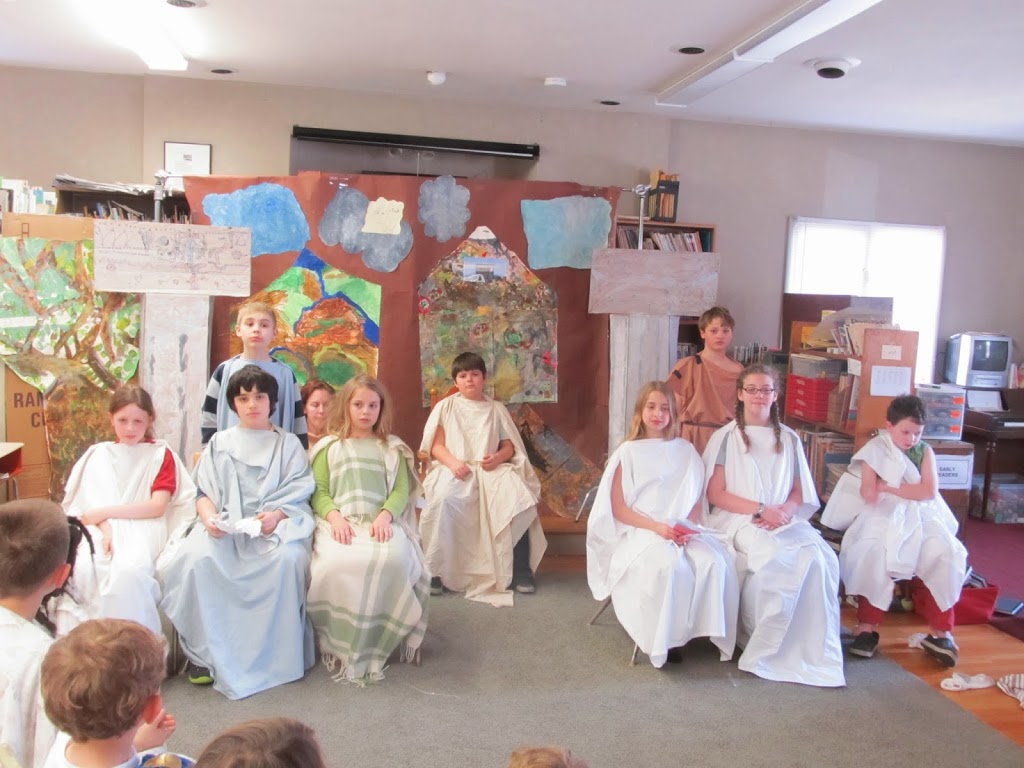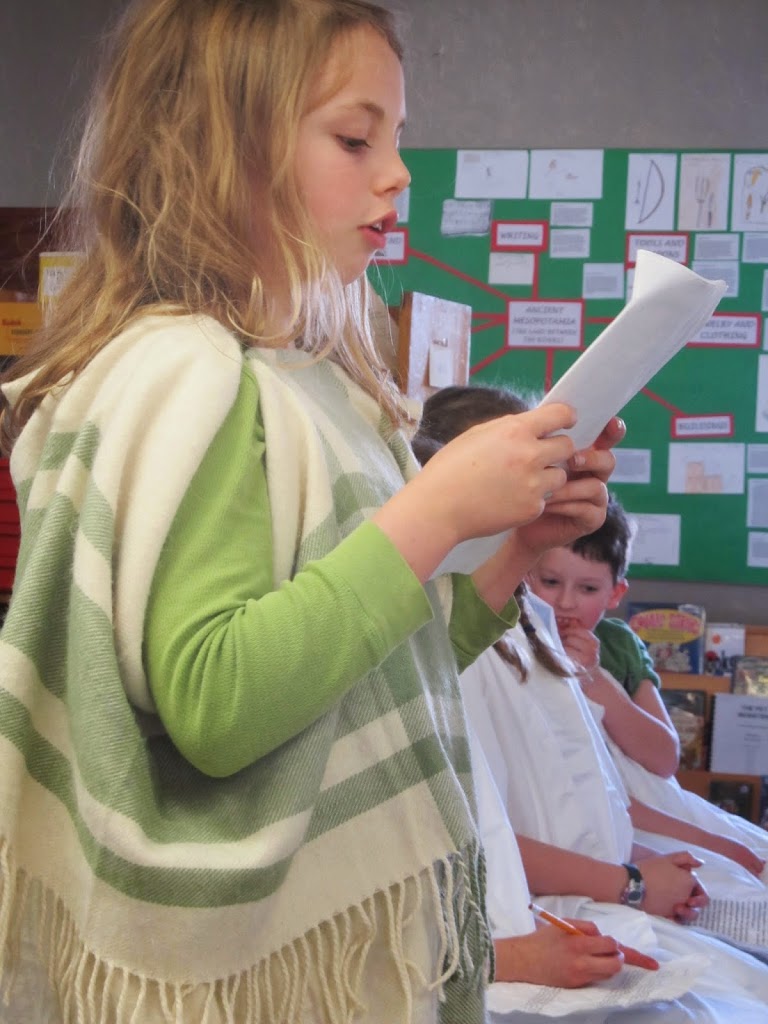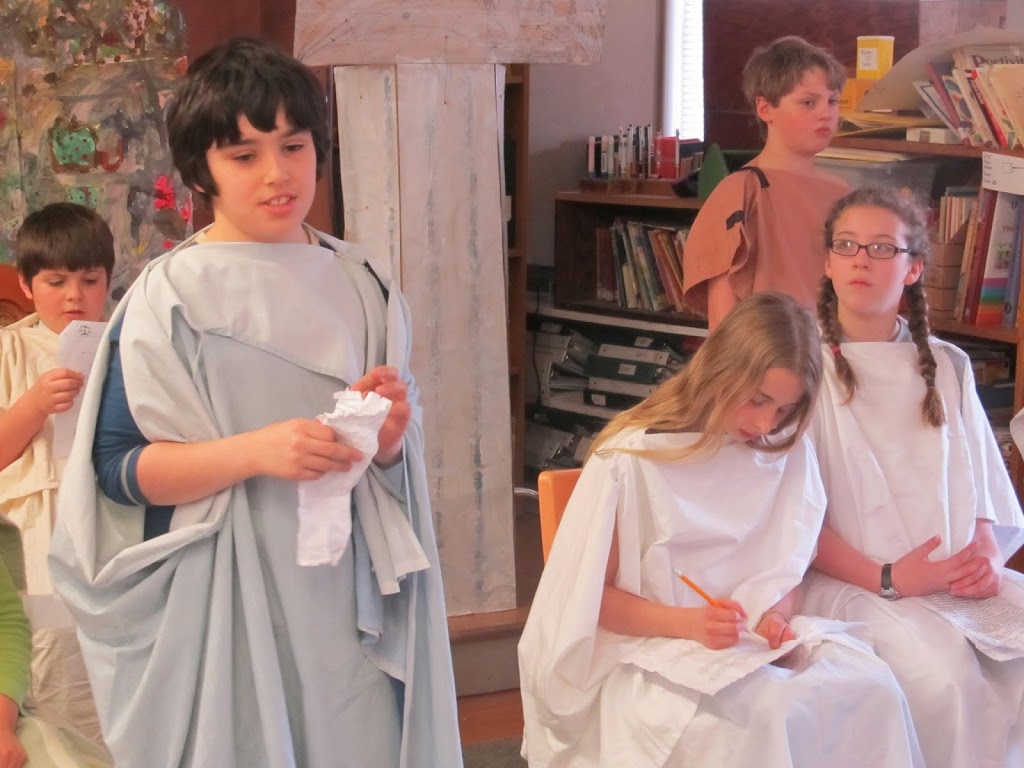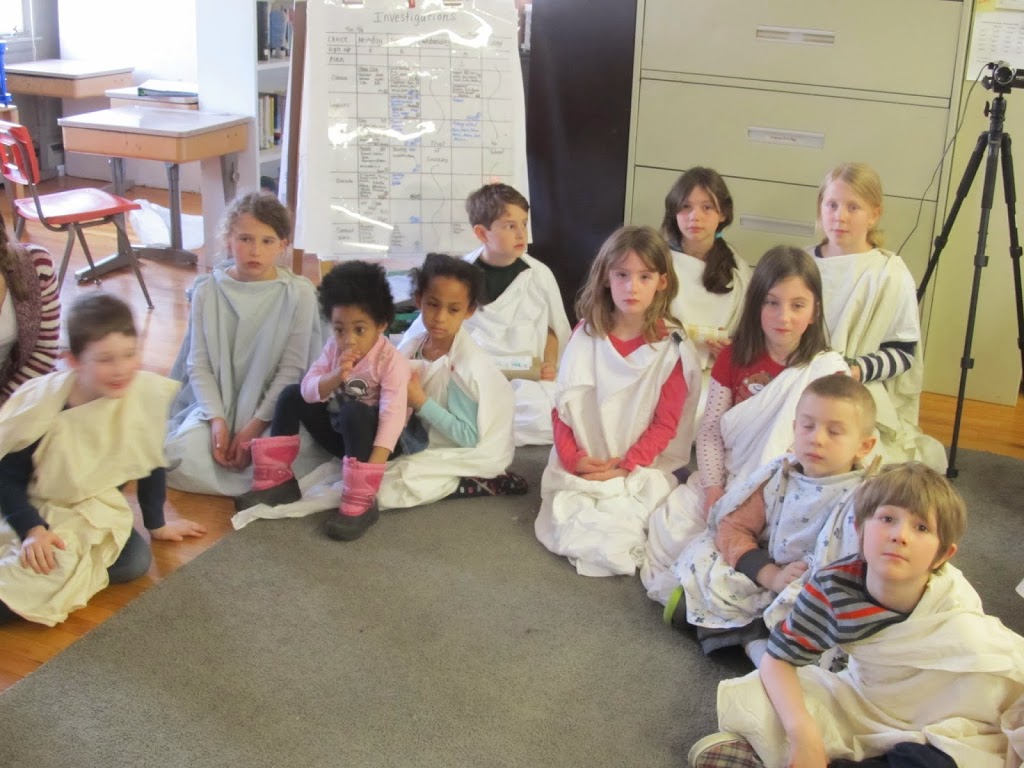Socrates was found innocent! At his trial at The New School, our children rewrote history. The re-enactment of the trial of Socrates marked the culmination of three months studying Ancient Greece by the entire school. To set the stage, children created a set showing the hills of Athens and the Parthenon set against Corinthian columns. Everyone was dressed in robes and while the jury deliberated everyone munched on stuffed grape leaves, hummus and feta cheese.
The action began when Socrates and his three accusers (Anytus, Lycon and Meletus) entered the court and took their seats. Socrates was charged with not worshipping the gods and corrupting the young. Meletus (Agnes Coleman) was the first to present his case. She said, “It is a disgrace to our city that a man who does not worship our god has a better life than some people who pray and chant up to our god.” Then came Lycon (Ace Wischman) who argued that Socrates “is a danger to Athens and the citizens of Athens. He is a danger to the law…ruining our city.” Anytus (Max Newman) made an impassioned plea, “Now my own youth is a drunkard and Socrates is responsible. Look at what this man has done to my son.” Xanthippe, (Maia Gostin) Socrates’ wife, made a plea to the court, and was escorted by guards (Asher Creel, Ben Foley) out of the room. (Women had no place in the Athenian courtrooms.)
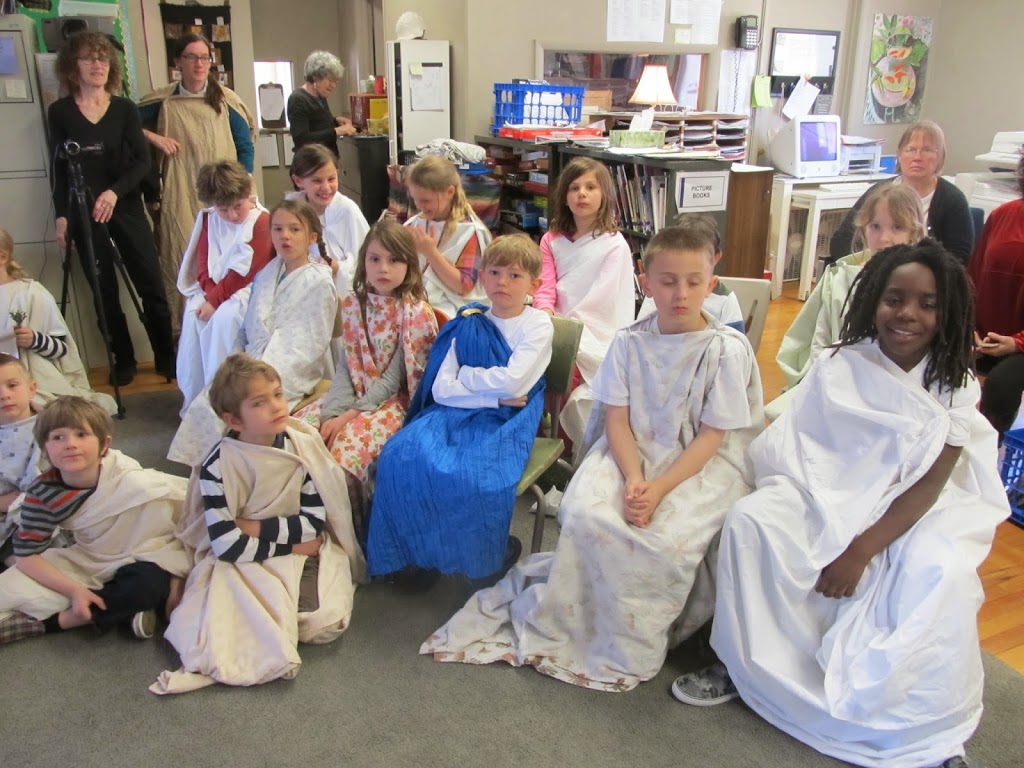 Then it was up to Plato, (Nora Vancalcar) and Chaerephon (Jake Aretsky) to support their friend and colleague. Chaerephon argued that the oracles of Delphi had confirmed that Socrates was the smartest man in all of Greece and accused his enemies of jealousy. Plato eloquently used an analogy to explain that “without knowledge we are but prisoners who spend our entire lives in a cave.” What was the danger of “asking questions?” After all “we learn from asking questions.” Finally Socrates (Neona Krabacher) spoke. He said, the charges brought against him “are the result of rumors that Athenians have heard since they were children.” He trusted that the Athenians, will think for themselves and find him blameless. Throughout the trial Socrates’ friends Cristobulus, Apollodorus and Adeimantus ( Alaira Otteson, and Juliette Waters) kept a record of all the trial proceedings, writing down the information on their papyrus rolls.
Then it was up to Plato, (Nora Vancalcar) and Chaerephon (Jake Aretsky) to support their friend and colleague. Chaerephon argued that the oracles of Delphi had confirmed that Socrates was the smartest man in all of Greece and accused his enemies of jealousy. Plato eloquently used an analogy to explain that “without knowledge we are but prisoners who spend our entire lives in a cave.” What was the danger of “asking questions?” After all “we learn from asking questions.” Finally Socrates (Neona Krabacher) spoke. He said, the charges brought against him “are the result of rumors that Athenians have heard since they were children.” He trusted that the Athenians, will think for themselves and find him blameless. Throughout the trial Socrates’ friends Cristobulus, Apollodorus and Adeimantus ( Alaira Otteson, and Juliette Waters) kept a record of all the trial proceedings, writing down the information on their papyrus rolls. grade children found Socrates innocent! Jury member, Greer Foley argued amongst her peers, “There is nothing wrong with asking questions.” Mae Cohen said, “He is a great teacher.” Lola Gostin agreed, “He believed in the Gods. He said it. Asking questions is not a crime. He just wanted his students to learn from a different perspective.”
